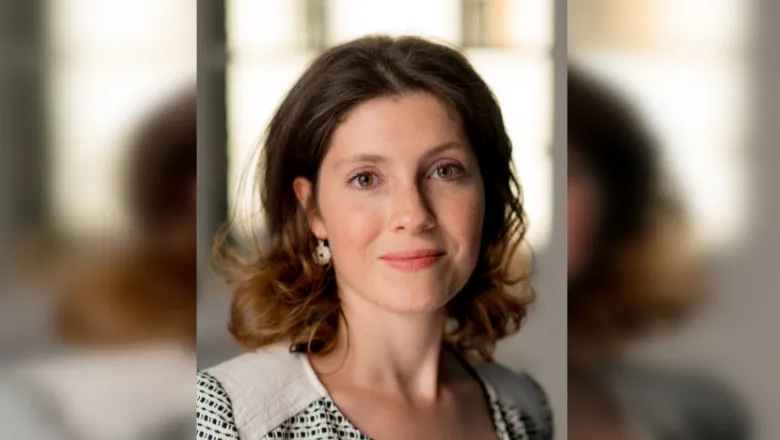My goal is to illuminate India's relationship to the world, present and past. I want to show that this relationship has been simultaneously anti-colonial and imperial. Far from disappearing at independence in 1947, this tension makes India's foreign policy (its institutions, its geopolitical worldview) full of paradoxes, contradictions, and complications—especially since it’s underpinned by pervasive exceptionalism: the idea that India, due to its unique civilisation and path to peace and freedom, is a singularly moral country, destined to leadership in the world.
Dr Bérénice Guyot-Réchard
20 October 2023
Bérénice Guyot-Réchard awarded Leverhulme Prize
The Leverhulme Trust has awarded £3 million to 30 extraordinary researchers.

Dr Bérénice Guyot-Réchard, historian of modern South Asia and the Indian Ocean at King’s has received a Philip Leverhulme Prize to write her second sole-authored book, The Glass Giant: India and the Making of an International World. The Prize will also fund additional archival fieldwork in India prior to completing the book.
The Glass Giant retraces India's participation in the world order from the late eighteenth century to today.
On receiving the prestigious prize Dr Bérénice Guyot-Réchard said; 'I am thrilled and honoured by the Leverhulme Trust's confidence. The Prize will give me two years to write the story of how central India has been to the making of the international order as we know it—and that its sense of itself, as an exceptional nation with a leading role to play in the world, has deep roots. The Glass Giant isn't just going to be a book about diplomatic dealings, war rooms, or the decisions of viceroys, prime ministers, ambassadors, and generals: for me, the story of India's global influence is as much about rookie diplomats, bored border guards, harassed indentured migrants, fleet-footed revolutionaries, anti-racist activists, and scientists on exchange visits. (So be prepared for a door-stopper of a book.)'
Chosen from over 400 nominations, the The Leverhulme Trust offered five prizes in each of the following subject areas: Biological Sciences, History, Law, Mathematics and Statistics, Philosophy and Theology, and Sociology and Social Policy.
Now in its twenty-second year, this scheme commemorates the contribution to the work of the Trust made by Philip, Third Viscount Leverhulme and grandson of William Lever, the founder of the Trust. The prizes recognise and celebrate the achievements of outstanding researchers whose work has already attracted international recognition and whose future careers are exceptionally promising.
For more information about the Trust, please visit https://www.leverhulme.ac.uk/
More information on Dr Bérénice Guyot-Réchard’s work:
Shadow States: India, China and the Himalayas, 1910-1962 is available in paperback from Cambridge University Press. The podcast on the book available here.
South Asia Unbound: New International Histories of the Subcontinent, edited with Elisabeth Leake, is available from Leiden University Press.

